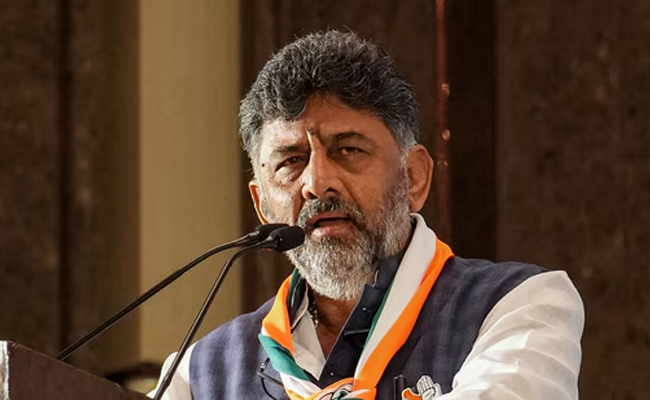New Delhi, Nov 7: The Enforcement Directorate Thursday conducted searches against some of the "main vendors" operating on platforms of e-commerce giants Amazon and Flipkart as part of a foreign direct investment "violation" investigation, official sources said.
A total of 19 premises of these "preferred" vendors located in Delhi, Gurugram and Panchkula (Haryana), Hyderabad (Telangana) and Bengaluru (Karnataka) were covered as part of the action, the sources said.
It is learnt that the ED inspected documents and took copies of some from the premises of about six such vendors who were not named.
The sources said a probe has been initiated by the federal agency under the provisions of the Foreign Exchange Management Act (FEMA) after it received several complaints against the two large e-commerce companies where it is alleged that they were "violating India's FDI (foreign direct investment) rules by directly or indirectly influencing the sale price of goods or services and not providing level playing field for all the vendors".
There was no immediate response from the two e-commerce companies.
The Confederation of All India Traders (CAIT) welcomed the ED action.
"The CAIT, along with several other trade bodies, has been raising these issues for the past few years. I welcome the Enforcement Directorate's actions as a step in the right direction," CAIT secretary general and BJP MP from Delhi Praveen Khandelwal said in a statement.
He claimed that the Competition Commission of India (CCI) had also issued "penalty notices" to Amazon and Flipkart, and their "preferred" sellers, for "engaging" in anti-competitive practices that have adversely affected small traders and 'kirana' (grocery) stores.
As per existing rules, 100 per cent FDI is allowed through automatic route in the marketplace model of e-commerce. But overseas investment is not permitted in an inventory-based model.
In the market place model, e-commerce entities can only provide a platform for third-party sellers and they cannot own the inventory. They also cannot directly or indirectly influence the price of the goods.
It has been reported in the past that the CCI, which works to ensure fair business practices across sectors in the marketplace, is already looking into alleged anti-competitive ways of e-commerce companies.
The CAIT and mainline mobile retailers' association AIMRA had also petitioned the CCI sometime back seeking immediate suspension of operations of Flipkart and Amazon as they alleged that the companies engaged in predatory pricing and were burning cash to offer heavy discounts on products .
These practices, in turn, are creating a grey market of mobile phones, causing losses to the exchequer "as players in the grey market evade taxes", they had said.
Commerce and Industry Minister Piyush Goyal had recently flagged the same concerns as he had questioned Amazon's announcement of USD 1 billion investment in India, saying the US retailer was not doing any great service to the Indian economy but filling up for the losses it had suffered in the country.
He had said in August that their huge losses in India "smells of predatory pricing", which is not good for the country as it impacts crores of small retailers.
Goyal said e-commerce companies were eating into the small retailers' high-value, high-margin products that are the only items through which the mom-and-pop stores survive.
The minister had said that with the fast-growing online retailing in the country, "are we going to cause huge social disruption with this massive growth of e-commerce".
Khandelwal said that the CAIT has urged the CCI and the ED to protect the businesses of small traders.
"In the new Bharat, led by Prime Minister Narendra Modi Ji, no one is above the law. I am hopeful that now the law will take its rightful course and protect the livelihoods of small shopkeepers.
"This government is committed to ensuring that no entity can harm the trading community. In response to multiple complaints filed by the trading community regarding FDI violations and the anti-competitive practices of quick-commerce companies such as Blinkit, Swiggy, and Zepto, we urge both the CCI and the ED to take swift action and prevent any further, irreparable damage to the businesses of small traders," he said in the statement.
Let the Truth be known. If you read VB and like VB, please be a VB Supporter and Help us deliver the Truth to one and all.
New Delhi (PTI): Prime Minister Narendra Modi on Saturday termed the mandate received by the BJP-led NDA in the Thiruvananthapuram Corporation a "watershed moment" in Kerala's politics and expressed gratitude to the BJP workers for the "spectacular results".
The Left parties suffered a major setback in the Thiruvananthapuram Corporation, held by them for 45 years, as the BJP-led NDA surged ahead with a huge lead.
Reacting to the civic body results, the prime minister said it is a day to recall the work and struggles of generations of karyakartas (workers) in Kerala, who worked at the grassroots, which ensured today's result became a reality.
"Thank you Thiruvananthapuram! The mandate the BJP-NDA got in the Thiruvananthapuram Corporation is a watershed moment in Kerala's politics," he wrote on 'X'.
PM Modi said the people are certain that the development aspirations of Kerala can only be addressed by the BJP. "Our Party will work towards this vibrant city's growth and boost 'Ease of Living' for the people," he said with the hashtag #VikasitaThiruvananthapuram.
The prime minister said the BJP karyakartas are the strength of the party, and everyone is proud of them.
"My gratitude to all hardworking BJP karyakartas who have worked among the people, which has ensured a spectacular result in the Thiruvananthapuram Corporation," he said.





